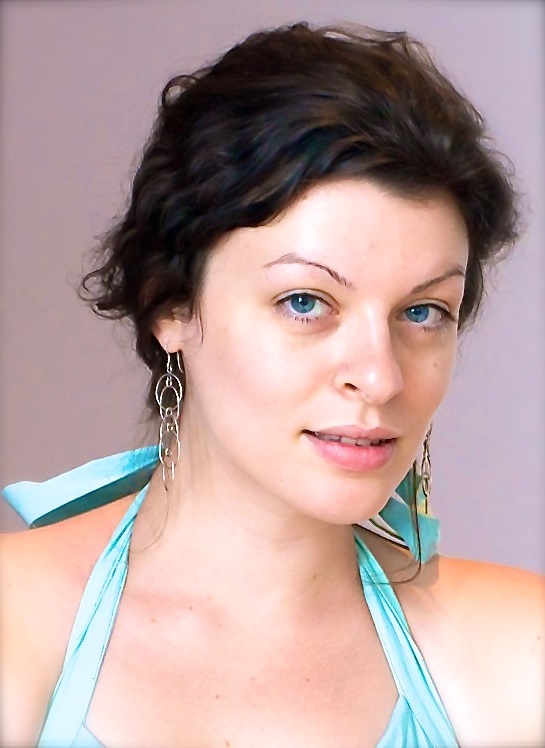People in the News
New Artist of the Month: Composer Julia Adolphe
 CINCINNATI--Composer Julia Adolphe is not yet 30. But already, she has written three works for the New York Philharmonic and a piece for the Los Angeles Chamber Orchestra. The New York native, who is earning a doctorate at the Thornton School of Music at the University of Southern California, is currently at work on her second opera.
CINCINNATI--Composer Julia Adolphe is not yet 30. But already, she has written three works for the New York Philharmonic and a piece for the Los Angeles Chamber Orchestra. The New York native, who is earning a doctorate at the Thornton School of Music at the University of Southern California, is currently at work on her second opera.
Adolphe was in Cincinnati last month for the premiere of her second piece for the May Festival Chorus, conducted by Director of Choruses Robert Porco in the newly-renovated Music Hall. The 15-minute commission, Equinox, an a cappella setting of a text by American poet Elizabeth Alexander, is musically vivid, humorous, and ultimately quite touching.
Adolphe’s gift for melody is one characteristic that makes her music instantly appealing.
“Melody is crucial to my music, as is creating a musical narrative” she says, explaining that she always sings as she composes. “But even in my viola concerto, Unearth, Release [composed for New York Phil Principal Violist Cynthia Phelps], or my other works without text, there’s a very clear storyline – not in a programmatic sense, but an emotional arc.”
Her love of song began as a youngster when she joined a New York musical theater company for kids called TaDa!
“I grew up loving music and loving theater,” she says. “Ultimately I realized that I have a passion for storytelling with music, particularly through the voice. So, writing for choir and writing opera is a dream come true for me, because it feels like I’m back in my element.”
Adolphe’s first opera, Sylvia, a one-act chamber opera to her own libretto, premiered in concert version at Bargemusic in New York in 2013 in performances that she also produced. Her second opera, for seven singers, ten instrumentalists, and children’s chorus, is based on the children’s fairytale, A Barrel of Laughs, A Vale of Tears by Jules Feiffer. The librettist is Stephanie Fleischmann.
Adolphe’s Cincinnati connection was sparked by James Conlon, May Festival music director laureate, who commissioned her evocative Sea Dream Elegies for chorus, oboe/English horn, and cello for his final season in 2016. In 2013, Adolphe was co-producer of The Prodigal Son conducted by Conlon for the Los Angeles Opera Britten Centennial, and she served as his assistant for the Orel Foundation, which is devoted to resurrecting music suppressed by the Third Reich.
The rising composer has had other champions, too. At Cornell University, she studied with the Pulitzer Prize-winning composer Steven Stucky. She was his only undergraduate composition student in a class of all-male doctoral students.
“That was incredibly intimidating to me. But Steve was so welcoming, that he made it comfortable for me, and he made it clear to everybody that I was welcome there,” she said of her late mentor, who died in Feb. 2016. “I ended up learning a lot from those doctoral students, as well. They embraced me, too.”
Nevertheless, Adolphe was surprised to find, as she was applying to graduate programs, that she was usually the only female in the pool. She made the decision to attend graduate school at USC because there were as many women as men studying composition that year. “I didn’t see that anywhere else,” she says.
The Virginia B. Toulmin Foundation, which supports organizations that encourage the participation and leadership of women and emerging artists in the performing arts, has been helpful in her success, providing funds for two of her key awards: the League of American Orchestras’ Women Composers Readings and Commissions program, for the viola concerto, and Opera America's Grants for Female Composers for her new opera.
As she embarks on major projects for high-profile ensembles, Adolphe believes that the most important thing a composer can do is to “stay true to your own voice.”
“If I start thinking, ‘this is for the New York Philharmonic,’ I won’t get anything on the page,” she said. “So I have to be careful and protective of my writing space, so that I can get myself into a mindset where I forget about all of that, and just try to connect with what it is that I want to say musically and how I want to say it. And just get lost in the piece itself.”

WHO'S BLOGGING

Law and Disorder by GG Arts Law
Career Advice by Legendary Manager Edna Landau
An American in Paris by Frank Cadenhead




 FEATURED JOBS
FEATURED JOBS

 RENT A PHOTO
RENT A PHOTO


